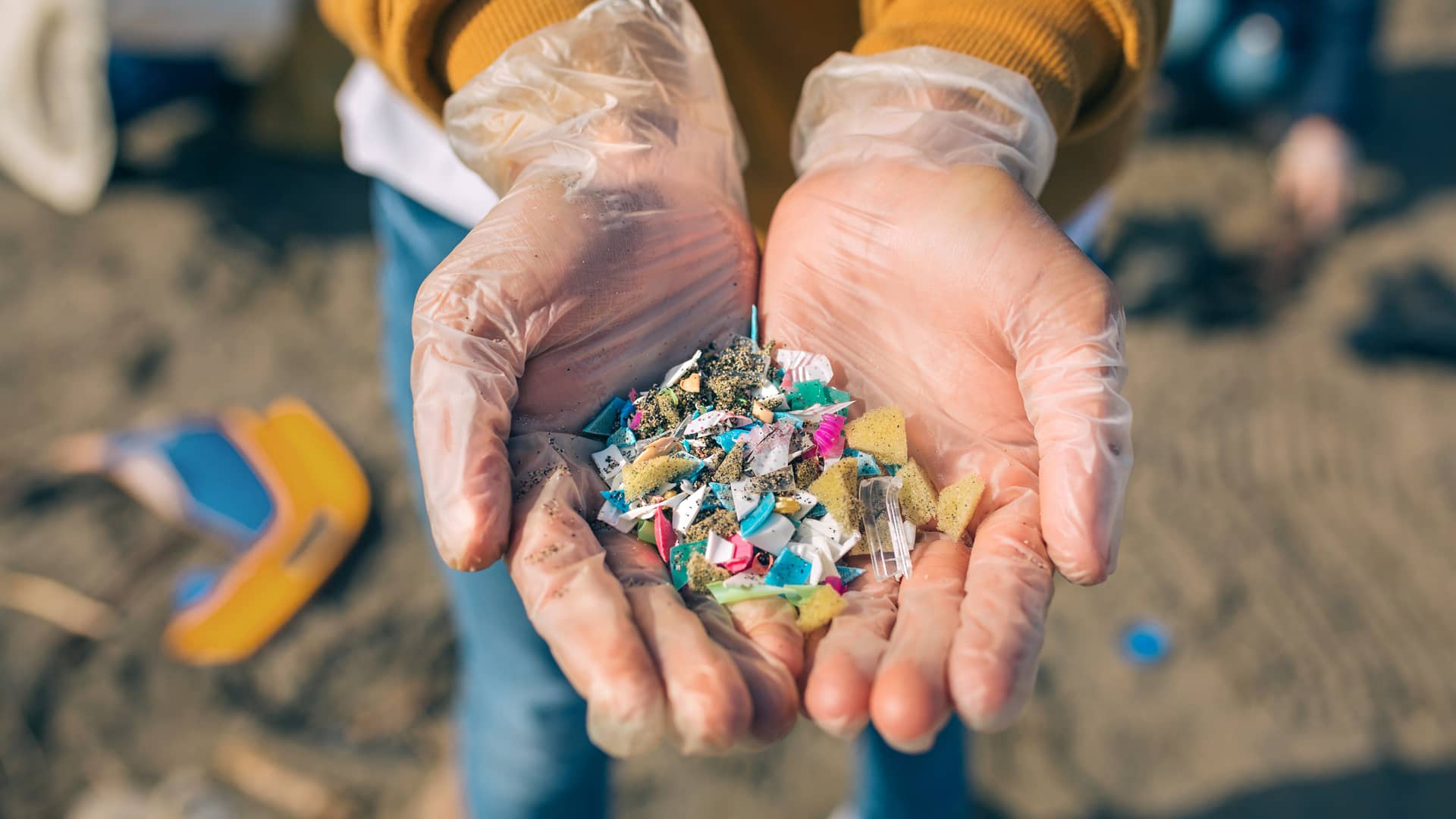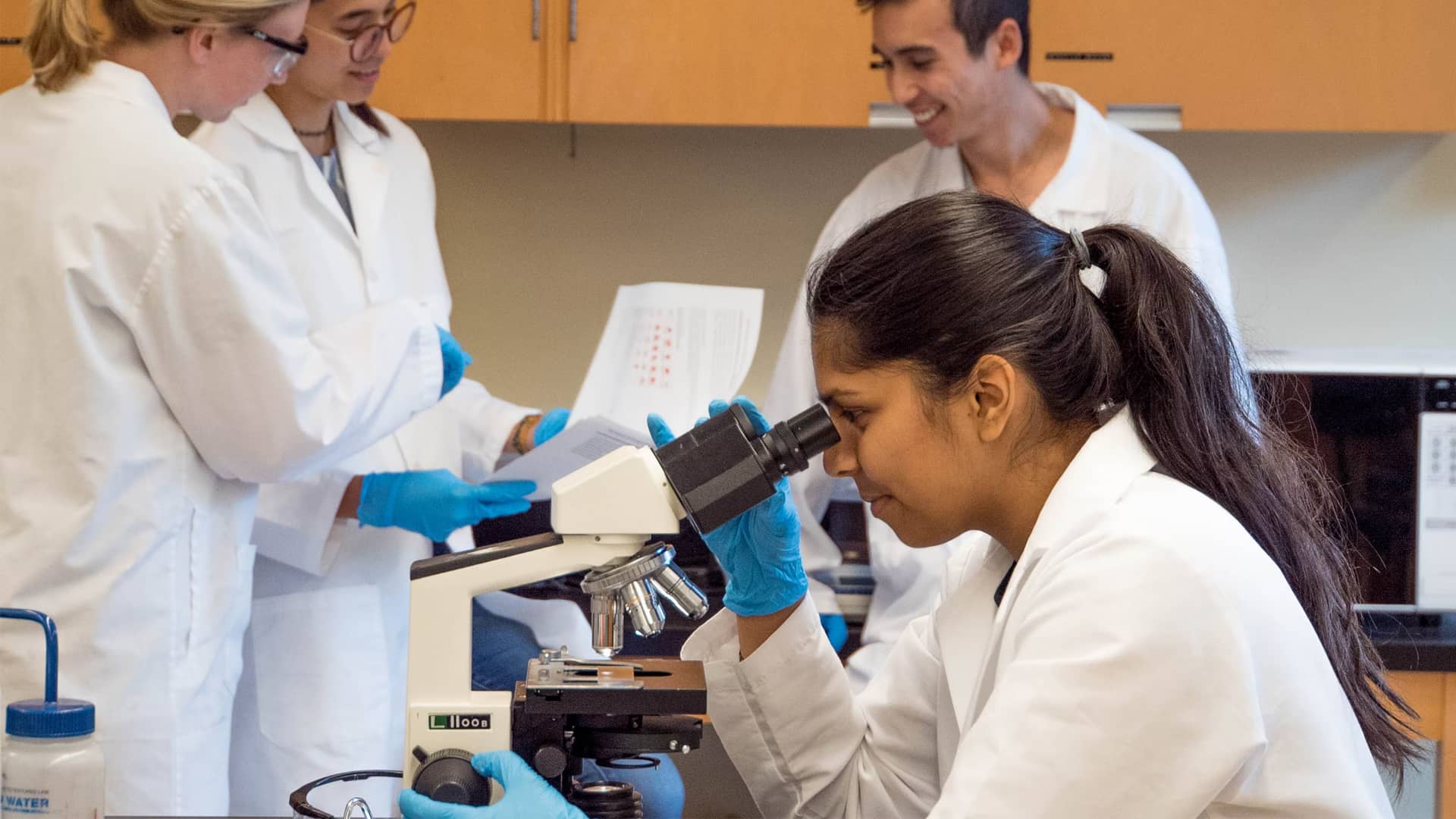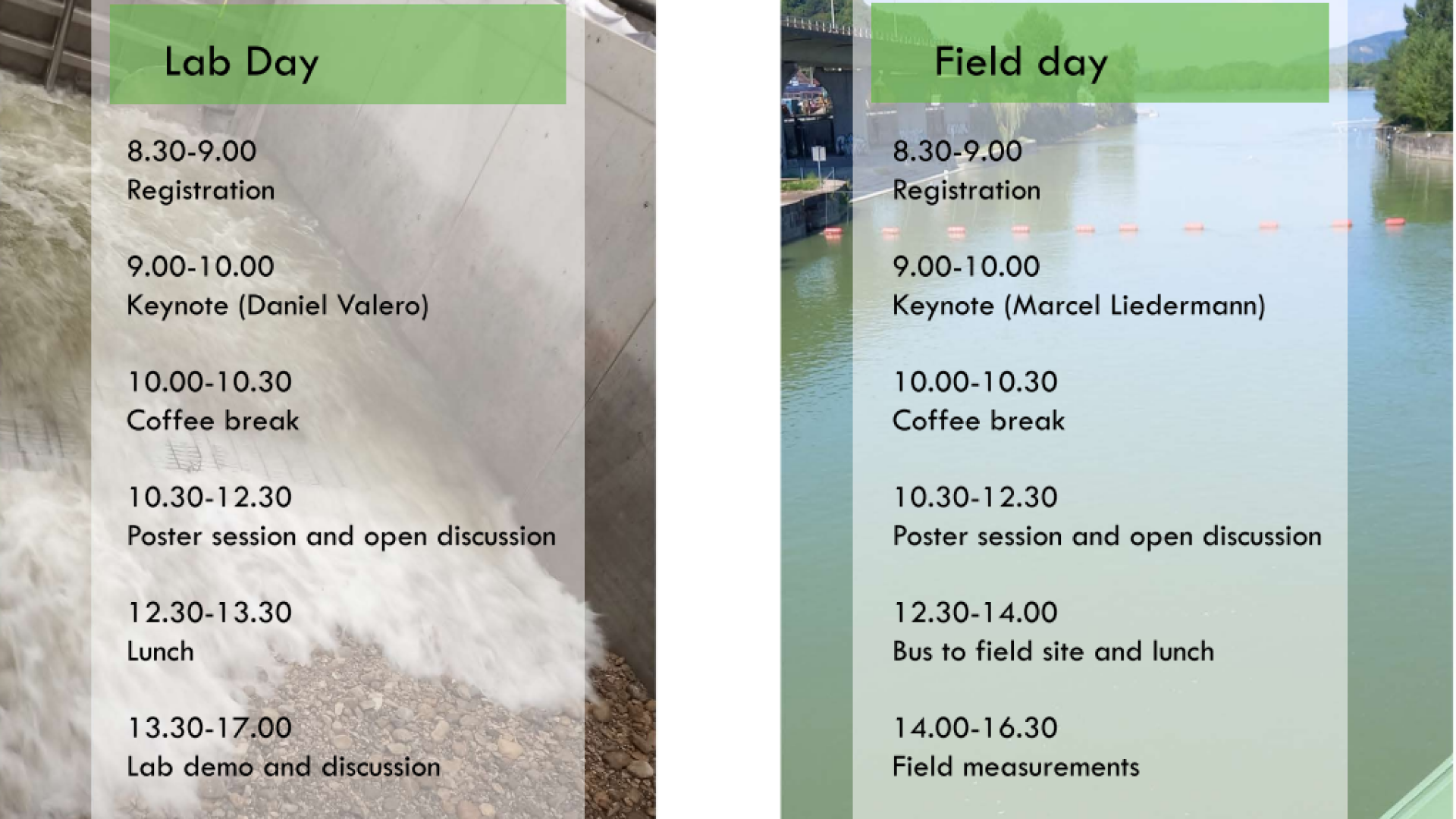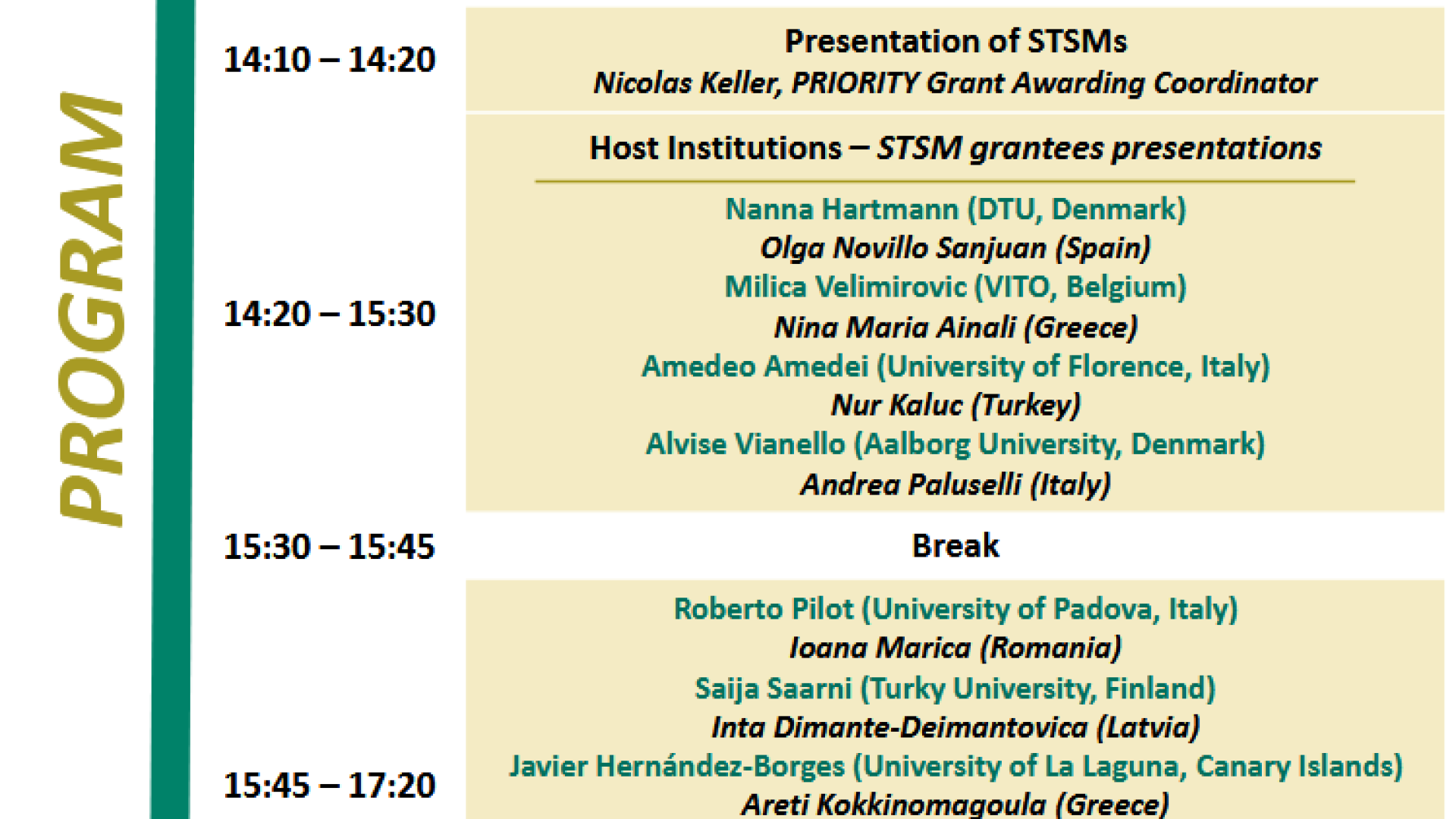PRIORITY • COST ACTION CA20101
Plastics Monitoring Detection Remediation Recovery
PRIORITY is a science and technology research network focused on developing, implementing, and consolidating strategies to tackle the global challenges of micro- and nanoplastics in the environment.

About
Introduction
to the Action
PRIORITY stands for ‘Plastics monitoRIng detectiOn RemedIaTion recoverY’
Description
Enhance the technical standards for sampling and analysis of micro- and nanoplastics in the environment.
Objectives
Create and coordinate a team of scientists and experts to address the challenges in the field of environmental nano- and microplastic pollution.
Background
The production, demand and disposal of plastics has grown exponentially during the last century, leading to a production of 359 million tons in 2018.
Structure
Meet our
Working Groups
PRIORITY is organised in seven Working Groups to develop a research network.
WG1 aims to assess impacts and risks on human health and environment related to N/MPs, as well as to identify, develop and increase the European and global standardization of methods for testing the hazards of N/MPs.
WG2 aims to help European and developing countries to assess and develop harmonized monitoring methods and sampling procedures for different environmental matrices.
The objectives of WG3 are to (1) understand the potential of the tools available for the analysis, (2) to help European and developing countries to assess harmonized methods, and (3) to facilitate and encourage access to EU research infrastructures and facilities.
WG4 aims to identify suitable and validated analytical methods for detection and quantification of NPs based on the experiences of the Action participants.
WG5 – Remediation, recovery and development of sustainable alternative to plastic materials- aims to identify reuse, recycling, and recovery alternatives for environmental plastics and to define technological approaches for new recycling and recovery alternatives.
The main objectives of this WG are the validation of existing protocols for sample preparation and measurements (shape, size, abundance, and composition) in the range of N/MPs, through organization and the participation of PRIORITY laboratories in interlaboratory studies and comparison with different independent measurement principles.
This WG plans to encourage scientists to participate in science communication activities to increase awareness in society and education regarding the environmental issues related to N/MPs.
Join Us
Are you Interested
in Taking Part?
The COST Action PRIORITY welcomes research-active scientists working in the field. There are many ways to get involved.






